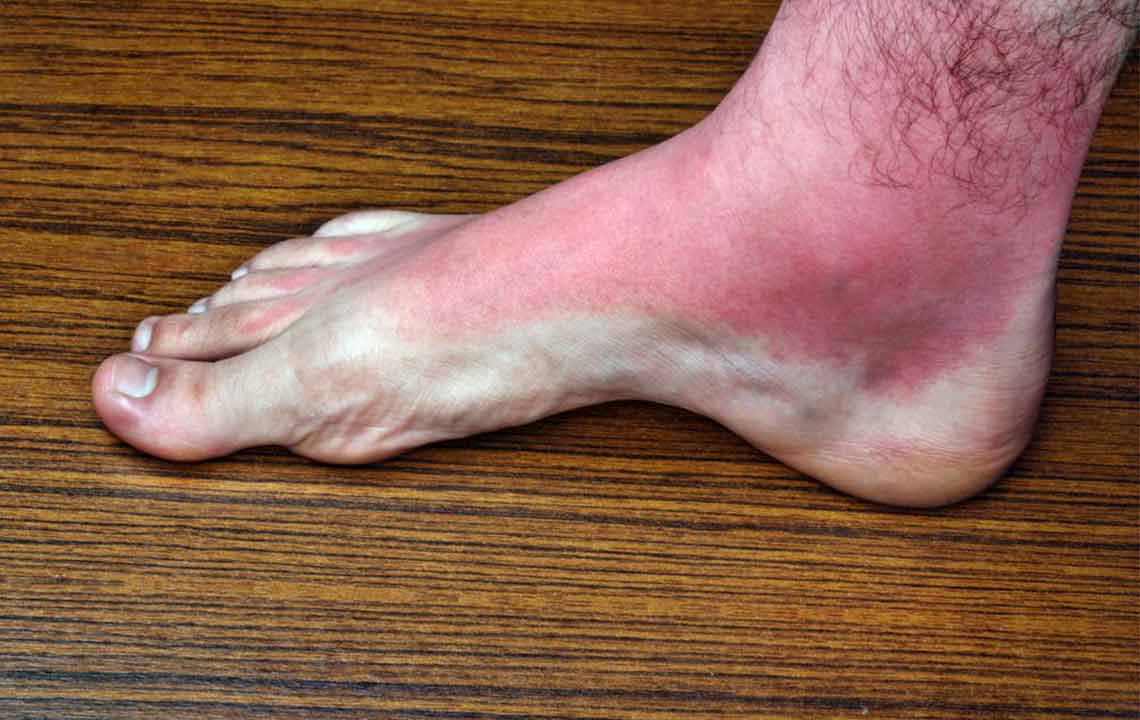Heat rash: Causes, symptoms, and treatment
Heat rash is nothing more than a red or pink rash mainly appears on your body which is covered by clothing. Mostly it happens because of the blockage and swelling of the sweat ducts. It causes itching and discomfort.
Babies get heat rashes easily but in a humid, hot climate even adults can have it. In medical terms, it is known as Miliaria. In this condition, one can witness small, pink pinpointed bumps on their face, neck or other parts of the body.
Miliaria can be classified into three types, which are as follows:
- Miliaria Crystallina or Clear : this is the mildest of all, and in this condition, the bumps are neither painful nor itchy.

What are the causes of a heat rash?
We as parents dress our babies so warmly that sometimes, it results in heat rash. If the weather is hot, and the clothes are warm, chances of having a heat rash are quite high in babies as well as in adults.
What are the symptoms of a heat rash?
- They look like tiny pimples or dots and can be seen at the entry point of the sweat gland.
- Sometimes you can also see your skin in a red and pink patch which indicates that it might develop a rash if proper heat rash treatment is not undertaken . If you have deep heat rash, you will witness more itchiness and large as well as raises red bumps.
Different people have different symptoms when they have heat rashes. Places where one can have a heat rash are listed below:
- Neck
- Face
- Abdomen
- Back
- Groin
- Buttocks
- under the breast
- Elbow folds.
It can cause more irritation in case it is rubbed against clothes or it can even develop other skin infection if heat rash treatment is not done on time.
How to diagnose a heat rash
Normally, a heat rash can be diagnosed just by its appearance and it doesn’t need any medical attention for it. But in some rare cases, if it does not cure within 3-4 days, or seems to get worse, medical help is required.
While diagnosing heat rashes, make sure that there are no signs of other skin infection, which might include:
- Increased redness, swelling, pain or warmth around the affected part.
- Red bumps spreading to other nearby areas
- Any sort of Pus coming out of the affected part
- Swollen lymph nodes in the armpit, groin or neck
- Fever rising from 100.4 degrees Fahrenheit or having chills without any reason.
In the case of these symptoms, you need to consult your doctor as soon as possible.
Who can develop a heat rash?
Anyone can have a heat rash, especially in certain climates. However, some individuals are more prone to have a heat rash, such as:
- Infants
- Kids under four years of age
- Individuals or athletes who work out in hot environments
- Overweight or obese people
- Non-ambulatory or bedridden patients
- Military soldiers
- People having a congenital absence or decreased sweating.
Heat rash treatment
In most cases, there is no specific heat rash treatment. We do not have to do anything as a heat rash heals with time. However, following steps can bring down the symptoms.
- If you notice a heat rash on your baby’s skin, loosen your baby’s clothes or remove them and take your little one to a cool place.
- Do not rub the skin with a towel. Let it dry on its own.
- Do not use ointments or lotions in the sore areas. It may further irritate the skin.
How to prevent heat rashes
To prevent heat rashes, try following these tips:
- Avoid putting several layers of clothing in a hot climate to avoid heat rashes. Use cool and light fabrics.
- Always keep the skin dry and cool.
- Keep the sleeping area cool and dry.
- Avoid using skin lotion that enters the sweat glands and blocks them. Instead, try water resistant lotions that sit easily on the skin and allow the skin to breathe.
- Using natural fruit and vegetable extract sunscreen lotions may help.
In most cases, a heat rash treatment is not required. They get cured without any heat rash treatment, within a day or just by moving to a cooler place. Of course, your sweat glands take a week or more to recuperate. It’s better to prevent a heat rash to avoid the itchiness and other side effects.

